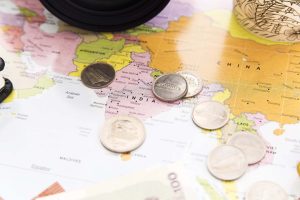Forex trading, also known as foreign exchange trading, is the buying and selling of currencies on the foreign exchange market. With trillions of dollars being traded daily, it has become one of the largest and most liquid markets in the world. If you are a beginner looking to get started with forex trading, this comprehensive guide will provide you with the necessary knowledge and steps to begin your journey.
1. Understand the Basics:
Before diving into forex trading, it is essential to grasp the basics. Familiarize yourself with key terms such as currency pairs, pips, lots, and leverage. Understand how the forex market operates, including the various trading sessions and the factors that influence currency fluctuations.
2. Educate Yourself:
Forex trading requires knowledge and skills. There are numerous educational resources available online, such as e-books, webinars, and courses, that can help you understand the fundamentals and advanced concepts of forex trading. Take advantage of these resources to gain a solid foundation and build your expertise.
3. Choose a Reliable Forex Broker:
Selecting a reputable forex broker is crucial to your trading success. Look for brokers that are regulated by recognized authorities, offer competitive spreads, have a user-friendly trading platform, and provide access to essential tools and analysis. It is advisable to open a demo account with a few brokers to test their platforms and services before committing real funds.
4. Develop a Trading Strategy:
A trading strategy is a set of rules that govern your trading decisions. It helps you identify entry and exit points, manage risk, and determine position sizing. Consider your risk tolerance, trading style, and time commitment when developing your strategy. Backtest your strategy using historical data to evaluate its performance before implementing it in real-time trading.
5. Practice with a Demo Account:
Most forex brokers offer demo accounts, which allow you to practice trading with virtual money. This is an excellent opportunity to test your trading strategy, familiarize yourself with the trading platform, and gain experience without the risk of losing real funds. Spend sufficient time in the demo account until you feel confident in your abilities.
6. Start with a Small Capital:
When you are ready to start trading with real money, it is advisable to begin with a small capital that you can afford to lose. This minimizes the psychological pressures that come with trading and allows you to focus on learning and improving your skills. As you gain experience and confidence, you can gradually increase your trading capital.
7. Implement Risk Management:
Risk management is crucial in forex trading to protect your capital from significant losses. Set a maximum risk per trade and adhere to it strictly. Consider using stop-loss orders to automatically exit a trade if it reaches a predetermined level of loss. Additionally, avoid overtrading and emotional decision-making, as these can lead to impulsive and detrimental actions.
8. Keep a Trading Journal:
Keeping a trading journal is a valuable practice for beginners and experienced traders alike. Record your trades, including the reasons for entering and exiting, the outcome, and your emotional state during the trade. Analyzing your journal periodically will help you identify patterns, strengths, and weaknesses in your trading approach, allowing you to make necessary adjustments for improvement.
9. Stay Informed:
The forex market is influenced by various economic, political, and social factors. Stay updated with the latest news, economic indicators, and central bank announcements that may impact currency prices. Utilize economic calendars and news platforms to keep track of relevant events. This will enable you to make informed trading decisions and capitalize on market opportunities.
10. Continuously Learn and Adapt:
Forex trading is a continuous learning process. Stay curious and open-minded, and continuously seek new knowledge and insights. Attend webinars, read books, follow expert traders, and join online trading communities to stay connected and exchange ideas. Adaptation is key to surviving and thriving in the dynamic forex market.
In conclusion, getting started with forex trading requires dedication, education, and practice. By understanding the basics, choosing a reliable broker, developing a trading strategy, and implementing risk management, you can embark on your forex trading journey with confidence. Remember to continuously learn, adapt, and stay informed to navigate the ever-changing forex market successfully.






